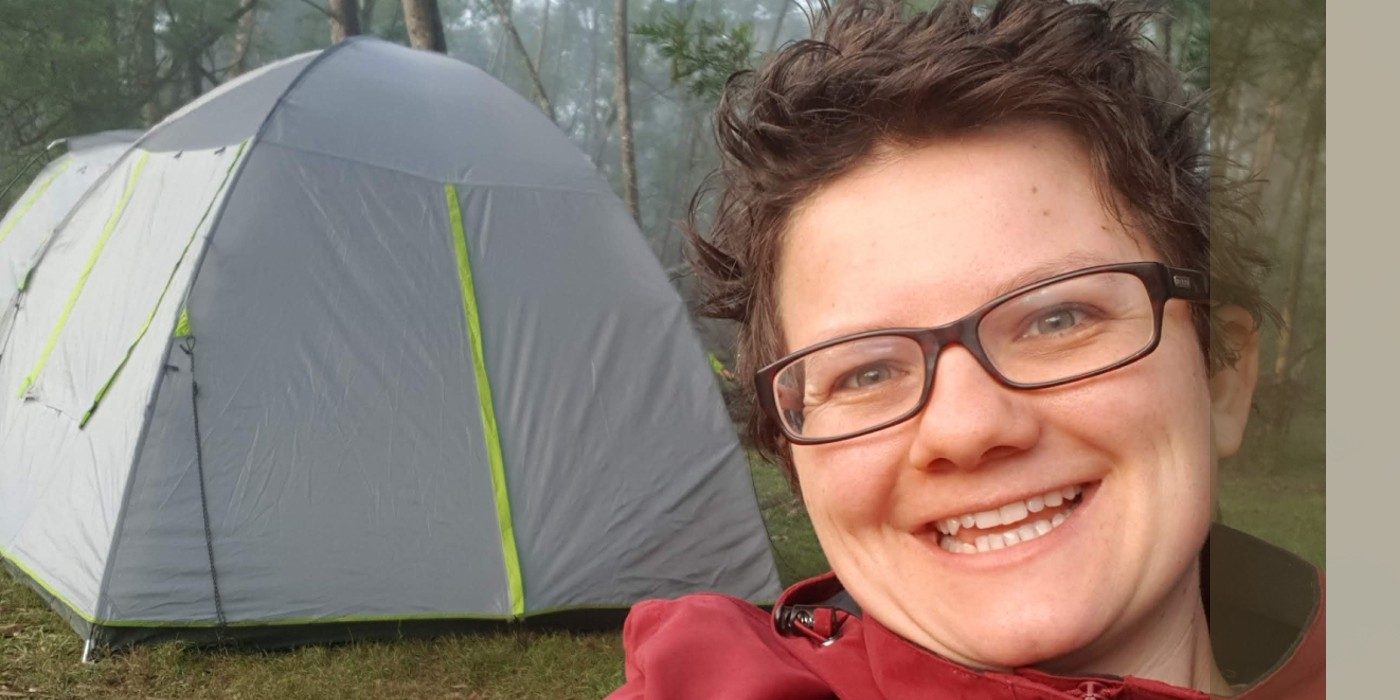
‘Numbers tell a story’: emerging thought leader Anna Campain on how data helps us understand and improve public health
Anna is a biostatistician at The George Institute, Australia. She specialises in using data to explore and understand health patterns in high-risk or vulnerable populations to inform treatments, approaches and behaviours. She is currently working on a research opportunity from the Sax Institute and Heart Foundation, to help reduce repeat heart attacks by using big data to support medication adherence – a WHO high priority to tackle chronic diseases.
Tell us about your background
I grew up in Sydney and now I continue to live and work here. Life is about connections, my heart longs to stay where most of my friends and family are. I do love the Australian bush and outback. The mountains bring me so much pleasure. I camp and spend as much time as I can outside but will always return home for a cup of tea with dear friends. I have always been a bit of a nerd. Growing up I was into science and books. I enjoyed maths and excelled at statistics at university, but I didn’t have much of a passion for it. However, in my final year I did a short, applied subject relating to medical statistics and suddenly found a use for the foundations that I had been laboriously laying down. I jumped straight into further research and have been smiling about it ever since.
What is routinely collected data, and why is it important?
Routinely collected data are figures or information collected in the background of typical interactions within the health system. This could include what time you arrived in the emergency department, and how did you get there? If you went to hospital was it a planned visit for an elective reason or something sudden? This data is all collected by the Australian Government for administrative purposes.
Data is collected at a lot of points, for example, for hospital use, health service use and pharmaceutical use. As researchers we can apply to use this data beyond its original purpose by analysing it carefully and thoughtfully. I think that it is important that we use this resource as thoroughly as possible. Reusing data is similar to reusing other things, being environmentally minded. Data is expensive to obtain and expensive to store. Using it to its capacity is beneficial.
What types of questions can be answered with this type of data?
Using routinely collected data we can answer questions that would be difficult with other data sources. Because the data is so extensive, we can answer questions that allow us to understand the health of populations. Analysis of routinely collected data can help decide where resources need to be focused, or whether a health campaign had the impact that was intended.
Health service trends can be established. How many times did someone visit their GP in the 12 months leading up to a heart attack? After being discharged from hospital how many days until a script for antibiotics was filled? These data also help to inform national health statistics, for example routinely collected data is a key component of the health and resource modelling used in COVID-19 management plans.
What does ‘thought leadership’ mean to you?
As a thought leader I am putting myself in a position to have educated conversations about the importance of using data well. Through my work I endeavour to highlight both the strengths and weaknesses of the data, show that there is huge value in making these datasets available. I also seek to answer concerns about using deidentified data in medical research. I might not have come up with the idea of routinely collected data, or the methods of using it well, or the policies that keep it safe. But I can advocate for it. For me, being a thought leader and a biostatistician, is a willingness to speak into the social space about statistical concepts, concerns and data.
What can we find you doing outside of work?
I am much more than just a statistician. I am a mother, wife, sister and a friend. A lot of my non-work time is spent with people, supporting, and loving them. I enjoy walking and bike riding especially somewhere dense with nature. But also, I am still a reader and a nerd, in the evenings or early mornings I like to curl up with my cat, a book and a cup of tea to recharge.


